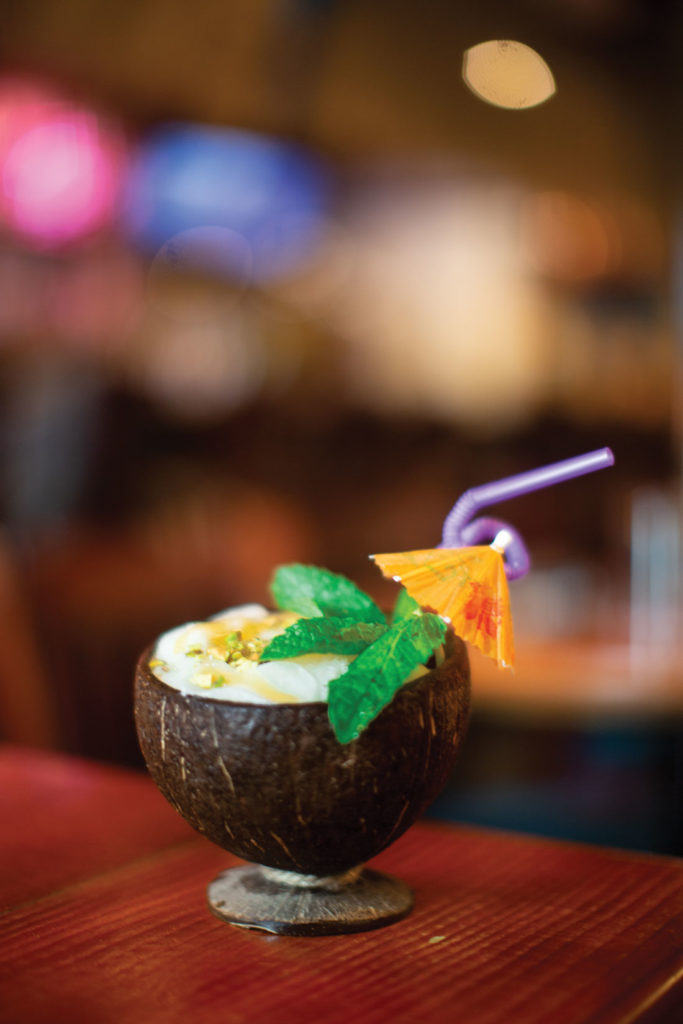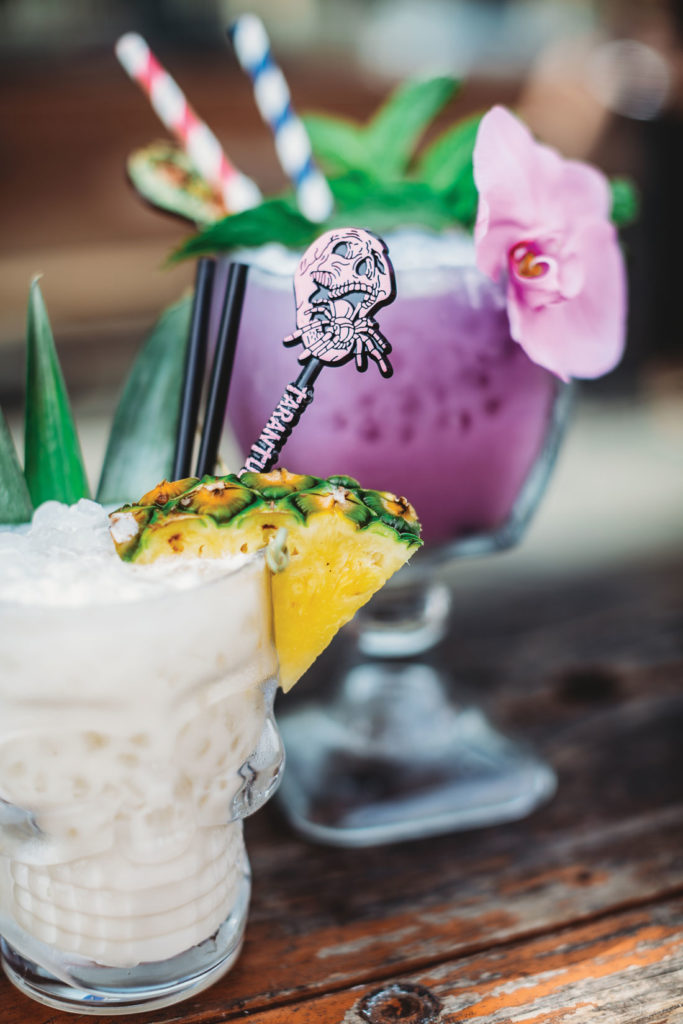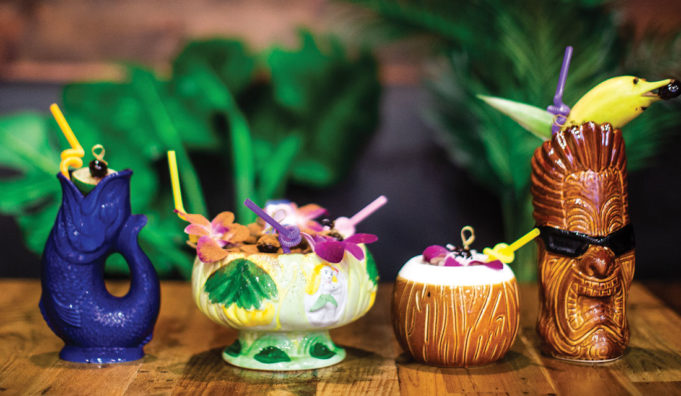With bamboo on the walls, a faux-grass roof atop the bar, and various wooden masks festooned throughout, Arlington’s 4 Kahunas looks and feels like a kitschy Polynesian oasis – a particularly theatrical experience. The year-old tiki bar wasn’t the first in Tarrant County to pour the often rum-heavy, lavishly garnished drinks, sometimes served in anthropomorphic vessels, but it was the first to focus only on the suddenly hip South Pacific-inspired daiquiris, Mai Tais, and Zombies.
West Magnolia Avenue Prohibition-era cocktail pioneers The Usual started the local trend with a weekly tiki night that featured various concoctions served in a real pineapple and accompanied by little paper umbrellas and extravagant straws. Starting a few years ago, its Near Southside neighbors at Proper began the annual exercise of transforming their chic environs into GiGi’s Tiki Tiki Lounge and dedicating a whole three months to the drinks, from July to September.

Soon, Tarantula Tiki Lounge will become the first dedicated tiki bar in Fort Worth. Its splashy opening signals the arrival of more than just another themed bar serving $15 drinks in skull-head mugs. It’s the manifestation of a certain mood in America: the escalating need for escapism. (The over-the-top drinks are just a bonus.)

Don the Beachcomber, the tropical-themed cafe in Hollywood that set the template for the modern-day tiki bar, opened in the 1930s in the middle of the Great Depression. Born Ernest Raymond Beaumont Gantt, Beachcomber had been a bootlegger during Prohibition and traveled widely in the South Pacific, even working as a beachcomber for a time in Tahiti. When he returned to the United States, the newly christened Donn Beach opened the country’s first tiki bar as a place to display the artifacts he collected during his travels.
During the mid-1930s, the rest of the country, too, was feeling the pull toward the islands. In its early years, a few hours at a tiki bar made for a great night out — a minivacation to a tropical fantasia — welcomed by people surviving the Depression. Then, for a time, kitsch overtook quality. And tiki’s determined “exoticism,” with its cultural appropriations and discomfiting evocation of otherness, reasonably put some drinkers off.
America’s tiki obsession hit its golden era in the postwar years, continuing into the 1950s and ’60s. After World War II, servicemen carried home stories of faraway Pacific lands. Among those returning was the author James Michener, a former Naval reservist who won a Pulitzer Prize in 1948 for his book Tales of the South Pacific. Rewritten as a musical, South Pacific became first a Broadway hit, then a movie sensation in 1958. Hawaii became the 50th U.S. state in 1959. Two years later, Elvis Presley released Blue Hawaii, setting off a fresh wave of enthusiasm for island culture. And thanks to developments in commercial aviation, more Americans were able to visit the actual South Pacific. In particular, tourism to Hawaii thrived. Tiki bars continued to provide a sense of escape, but during this economic-boom time, they acted as a dramatic counterpoint to the go-go sense of progress, big money, chrome and steel, and future, and space age.
These days, a new generation of bars has emerged along with the rise of the craft cocktail movement, which insists on refined skills and the best ingredients. With tiki, this serious approach must be coupled with joy: If it smacks of sanctimony, you’re doing it wrong. There’s still room for flashes of kitsch: a paper umbrella here, a palm frond there.
Though it’s impossible to capture the whimsy and flavors of the local version of this rebooted tiki craze in photos, that didn’t stop us from trying. Thanks to 4 Kahunas Tiki Lounge, Bodega West 7th, Proper, and Tarantula Tiki Lounge for giving us a taste of the tropics.












